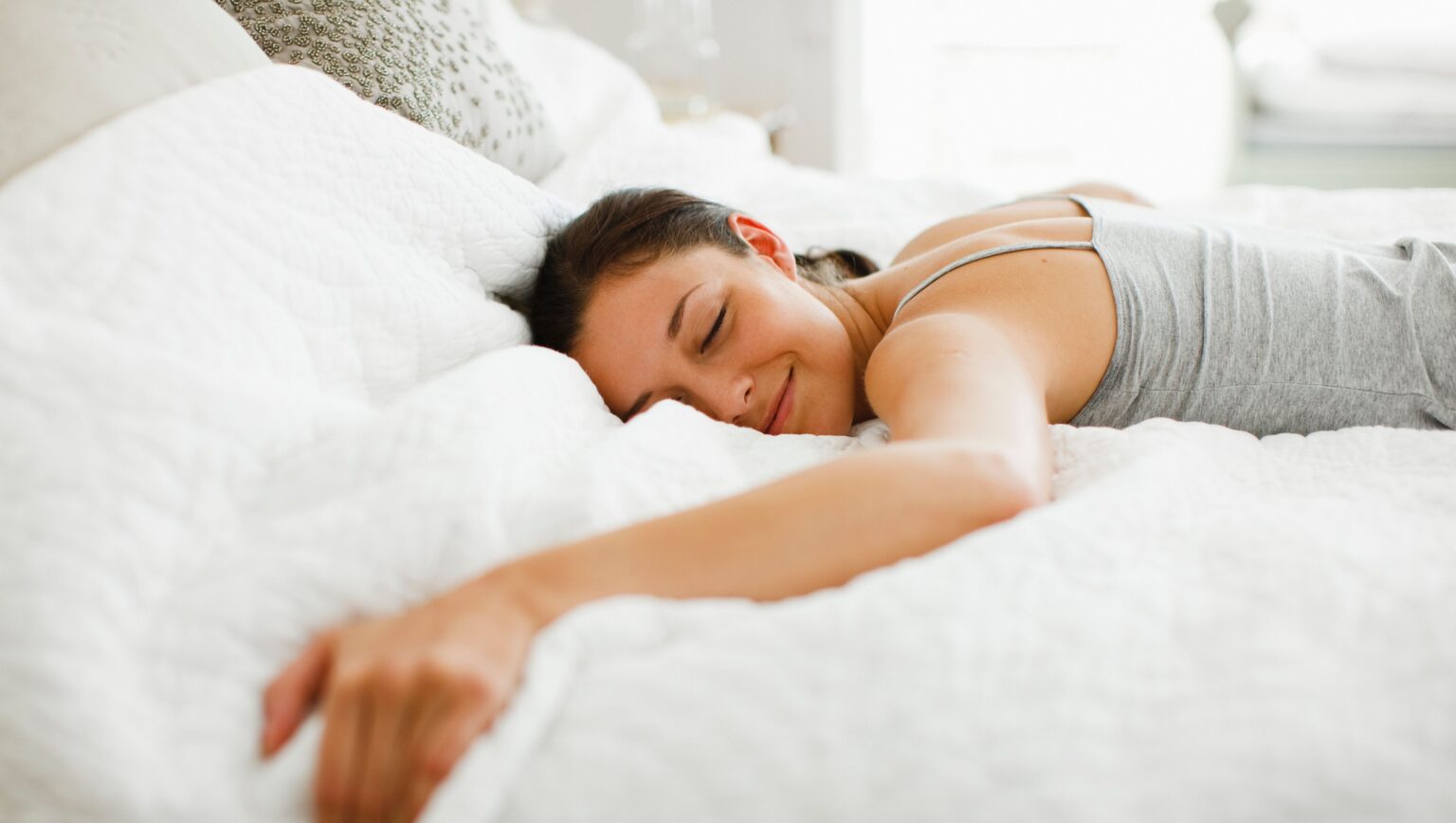It’s no secret that all adults should be aiming for seven to nine hours of sleep each night. But about a third of Americans have symptoms of insomnia, per the American Academy of Sleep Medicine (AASM), and for them, it can be extremely challenging to meet this goal.
Insomnia symptoms include difficulty falling or staying asleep, waking up too early and feeling tired during the day, according to the Mayo Clinic. Many of us experience these symptoms now and then, but as many as 10 percent of people have chronic insomnia diagnosed by a health care professional, per the AASM. And there’s been an increase recently due to a condition dubbed coronasomnia, notes Allison Siebern, PhD, CBSM, who’s board-certified in behavioral sleep medicine and Proper’s head sleep science advisor.
While getting on a regular schedule can help reduce insomnia, so can the right bed. In fact, sleeping on the right mattress can make all the difference for someone with insomnia, helping them not only fall asleep faster, but stay asleep during the night, says Peter Polos, MD, PhD, sleep medicine specialist and Sleep Number sleep expert.
“Certain mattresses can help address your specific sleep challenges with features such as a temperature balancing surface to keep you at your perfect climate, pressure-relieving layers and support to ease discomfort, adjustable firmness and softness and the ability to raise and lower the head and foot of the bed to accommodate different sleeping positions and help relieve snoring,” Dr. Polos says. “Some smart beds even provide data and insights into your sleep quality, biometrics like heart rate, HRV and breath rate, circadian rhythm and your overall sleep health.”
With that in mind, we’ve rounded up the best mattresses to try if you’re struggling with insomnia.
Read the full article here




